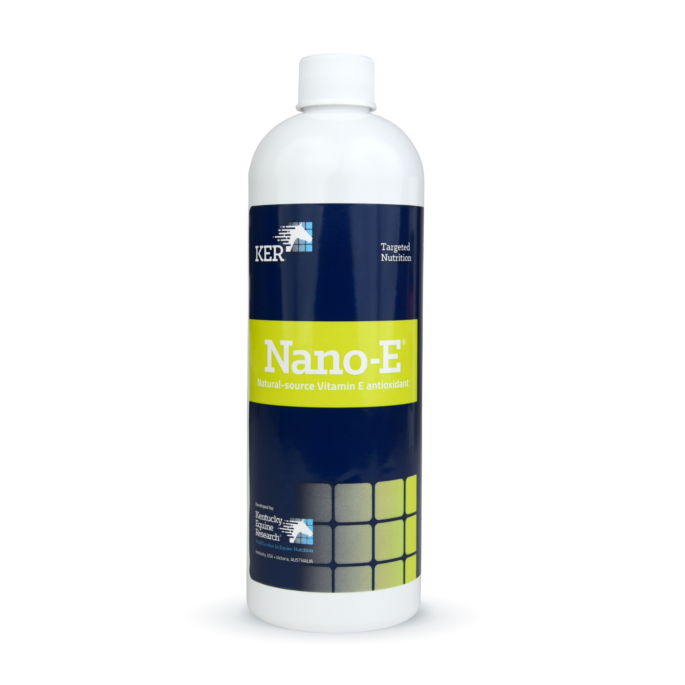Vitamin E
Vitamin E is a fat-soluble vitamin which is created through photosynthesis within plants. Vitamin E plays a vital role within the horse’s body to support:
- Immune Function
- Muscle Health
- Reproductive Function
- Liver Function
Vitamin E is a fat-soluble vitamin which is created through photosynthesis within plants. Vitamin E plays a vital role within the horse’s body for functions such as immune support, muscle health, reproductive function and liver support. Vitamin E begins digestion in the small intestine and is stored in the liver from which it is then excreted when required by the body. Antioxidants have the job of ‘mopping up’ free radicals which can damage cells within the horse’s body.
Horses in high levels of work will benefit from additional vitamin E supplementation to mitigate the effects of oxidative stress on the muscles and reduce the risk of muscle damage. This is also true for horses that suffer with muscle issues i.e., PSSM, tying up etc as it is likely that these horses have a vitamin E deficiency which is related to the muscle problems.
The NRC (National Research Council) states that requirements for vitamin E are 1-2IU / KG of body weight / day for synthetic vitamin E and 0.5IU / KG body weight / day for natural forms of vitamin E. To put that in context, a horse that is turned out for 6 – 12 hours per day on good grazing is unlikely to require additional vitamin E supplementation – unless there are additional requirements such as illness or injury.

However, with the darker evenings creeping in and shorter day lengths returning, many horses will start the changeover to a stabled routine with less turnout and a reduction in the quality of available grazing. Winter pasture that is not growing as well will lead to a decreased production of Vitamin E through photosynthesis. Furthermore, restriction to turnout will often lead to hay or haylage becoming the primary forage source. During hay making, 30 -80% of the vitamin E produced via photosynthesis in the grass is lost, and so for horses that don’t have access to fresh, growing pasture, their vitamin E intake is limited.

Vitamin E comes in two types natural and synthetic, with natural vitamin E being the superior source. Synthetic vitamin E still contains 12.5% natural vitamin E; however, studies have shown that the body favours natural forms of vitamin E over synthetic ones so choosing a natural source will be more effective as it is more bioavailable – more is absorbed.
Unlike may vitamin E supplements on the market, KER’s Nano-E is a natural vitamin E supplement, ensuring it is easily taken up and retained in the tissues. In addition, the vitamin E particles are dispersed in a liquid form making it even more bioavailable. Studies carried out by Kentucky Equine Research have shown that Nano-E is four times more bioavailable than powdered natural vitamin E supplements, and six times more bioavailable than synthetic vitamin E supplements.
NEED SOME GUIDANCE
Our nutritional team on are on hand to help! Call 01622 718487 or email nutrition@saracenhorsefeeds.co.uk
Feed Advice Form
Complete our online form to receive a detailed nutritional plan for your horse or pony from one of our registered nutritionists.
Quick Feed Finder
Use our quick and easy feed finder as a guide to select the right feed for your horse or pony.











